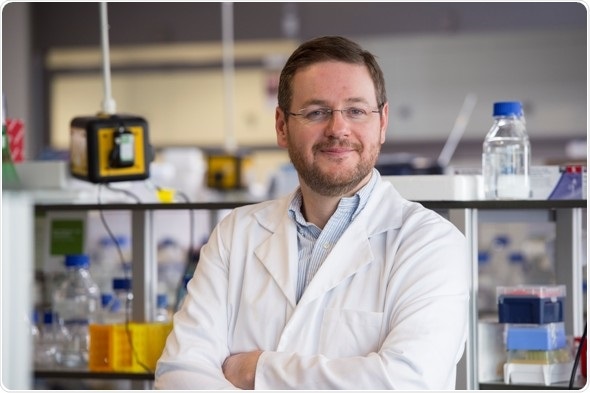Aug 18 2017
AIR pollution could make you more vulnerable to infection, scientists at a Scots university have revealed.

A team led by immunology expert Dr Peter Barlow has demonstrated for the first time that nano-sized particles found in traffic fumes can damage the immune system’s ability to kill viruses and bacteria.
While the potential link between car-choked streets and illness has been the subject of much debate, the work at Edinburgh Napier University is the first to show this effect and has significant human health implications.
The development is expected to prompt calls for the government to step up efforts to tackle air pollution following its recently announced plans to ban the sale of new diesel and petrol cars by 2040.
The Edinburgh Napier study focused on ‘antimicrobial peptides’, tiny molecules found in the immune systems of humans and animals which increase in response to infection.
Researchers at the School of Applied Sciences recently revealed peptides have virus-killing properties which could prove crucial in developing a cure for the common cold.
However, the new paper, published in The Journal of Immunology, reveals that particles found in air pollution can prevent peptides working properly.
Study Director Dr Barlow and researcher Dr Fern Findlay, working in collaboration with the US Entries for Disease Control and Prevention, and the Midlothian-based Moredun Research Institute, found carbon particles could trigger changes in the antimicrobial peptides, potentially resulting in “an increased susceptibility to infection”.
The implications are profound for people living in areas of high air pollution, who breathe in huge concentrations of particles every day or absorb them through skin contact, especially those with pre-existing lung conditions like asthma or COPD.
Dr Barlow, Associate Professor of Immunology & Infection at Edinburgh Napier, said:
This is an area of research that is very poorly understood.
We were extremely concerned when we found that air pollution particles could inhibit the activity of these molecules, which are absolutely essential in the fight against infection.
In light of these findings, we urge that strong action plans are put in place to rapidly reduce particulate air pollution in our towns and cities.
Source: http://www.napier.ac.uk/about-us/news/airpollution